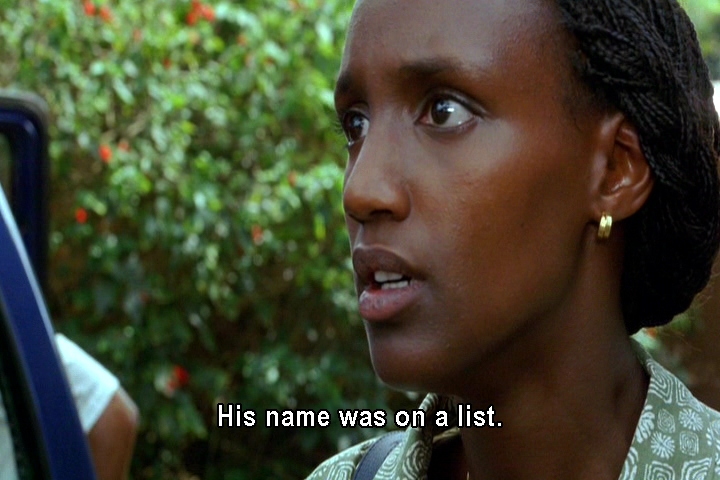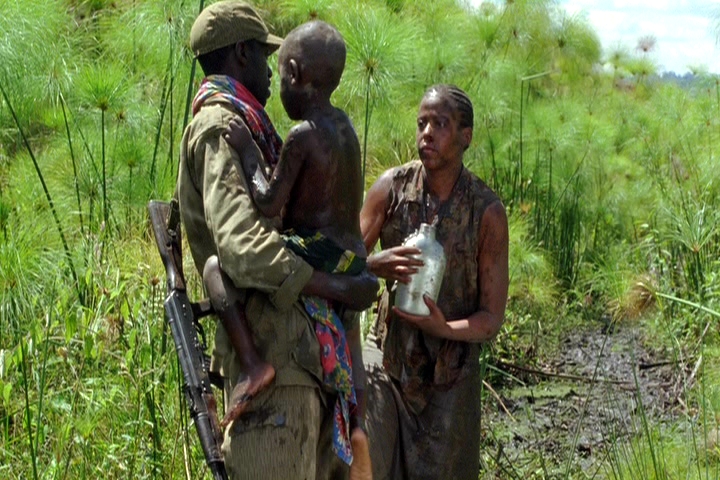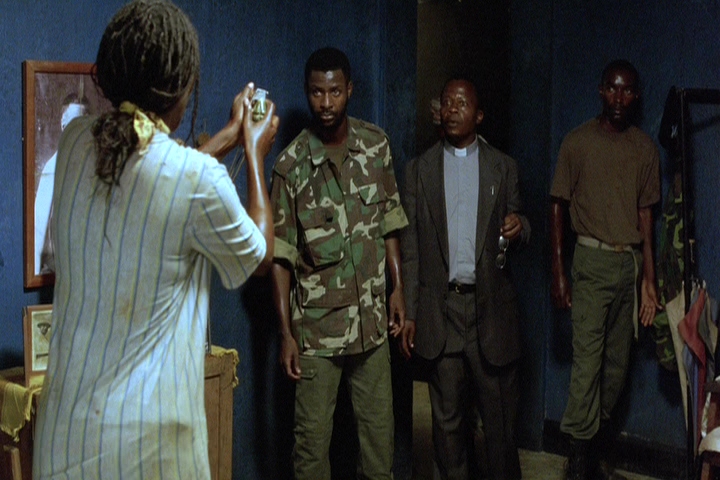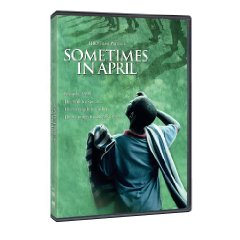When you only have time to see one African genocide movie, see “Sometimes in April”
I avoided seeing the Raoul Peck vision of the horrible Rwandan genocide, Sometimes in April, for years. I avoided seeing this film like how many of my ‘friends’—people I actually talk to on the phone—avoid reading, listening or seeing anything here in the kinté space. I understand the aversion a self-described “person of color” can feel and be reluctant to explore “black work”—the meaning of black in the Old English sense of the word. I understand how a person can draw from their own (often impoverished and under-informed) experience with other organizations and products “of color”—and as we get older and more rigid we just assume that this new “black thing” is going to be the same old brown shit.

I can also understand how a director like Raoul Peck might possibly become slightly angry when his work is dismissed based on a punk-ass set of psychological aversions—especially from North Americans as we are notorious for our self-indulgent, pleasure seeking and arrogant provincialism (which is often ironic and hypocritical in its discovery). Since I claim to be way, way too much in touch with my feelings (the word ‘my’ suggests I’m supposedly not concerned with ‘your’ feelings), I feel that I avoided Sometimes in April because I incorrectly assumed it was going to be a two-hour funeral dirge (designed to be a white-liberal tear jerker) full of pathetic sound and fury signifying nothing.

But when I see the lovely and elegant Carole Karemera say, “His name was on a list,” I am seeing a form of responsible detachment here. Raoul Peck is not going to insult your empathic capability here—he is devoting some time to explain how this tragedy took place with a very simple detail entitled, “His name was on a list.” The film is filled with such fine details.
What is very, very, very important about Sometimes in April is this shot from a scene with the lovely but mud-covered Pamela Nomvete: African people stopped the African killing. Raoul Peck made a point to show this—and you can listen to him on the commentary track of the DVD referring to this explicitly. Just in case your multi-billion-dollar-Hollywood-produced aversions are having trouble interpreting this scene (hey, it can happen to me too), Peck is showing us an African soldier saving an African woman and an African child.

 But let’s not get it twisted. Here in the rasx() context, the most important scene in this film is this shot with Carole Karemera: she is about to blow herself up along with a priest flanked by two soldiers. When I need to summarize the state of neo-colonial Africa with just one image, this image is it! The subtext here is rape. There is nothing natural about rape. Rape requires a consciousness that is transformed—deformed and institutionalized. What are the two transformational institutions represented in this image? You do the math. I am not trying to tell you that rape did not exist in Africa before the rise of Islam and Christianity—what I am suggesting is that rape is very, very hard to dream about in a world governed by elder African woman putting the correct young men in power. (How did these women ‘put’ such men in power? Simple. They raised them. When motherhood is organized into something we might describe as a ‘labor union’ you have a very, very powerful organization—a organization in charge of which humans will be born and how they will be educated—feels impossible to conceive, kid?)
But let’s not get it twisted. Here in the rasx() context, the most important scene in this film is this shot with Carole Karemera: she is about to blow herself up along with a priest flanked by two soldiers. When I need to summarize the state of neo-colonial Africa with just one image, this image is it! The subtext here is rape. There is nothing natural about rape. Rape requires a consciousness that is transformed—deformed and institutionalized. What are the two transformational institutions represented in this image? You do the math. I am not trying to tell you that rape did not exist in Africa before the rise of Islam and Christianity—what I am suggesting is that rape is very, very hard to dream about in a world governed by elder African woman putting the correct young men in power. (How did these women ‘put’ such men in power? Simple. They raised them. When motherhood is organized into something we might describe as a ‘labor union’ you have a very, very powerful organization—a organization in charge of which humans will be born and how they will be educated—feels impossible to conceive, kid?)
Raoul Peck, you have my sincere apologies. I should have looked at your work sooner. Now that I realize that you are the director of Lumumba, I am even more embarrassed and ashamed… But I know from progressive experience that these kinds of discomforts lead to a better place…

Comments
ed, 2009-04-29 22:46:36
What made you have initial opposition to watching Mr. Peck movies?
rasx(), 2009-04-30 15:55:09
Man, I saw Lumumba and did not know it was a Raoul Peck film. So when Sometimes in April came out I held it under the influence of Hotel Rwanda---which is not horrible but was not very motivating...
Pamela Nomvete, 2011-06-17 07:59:06
This is the most beautiful succinct impression of this film. Thank you. I have been in the industry for twenty-five years and it is still the high light of my career. The whole experience of being part of this project is unforgettable. Thank you for appreciating it as much as I did and more importantly, the people of Rwanda did. When I saw Lumumba I prayed to work with Raoul Peck.